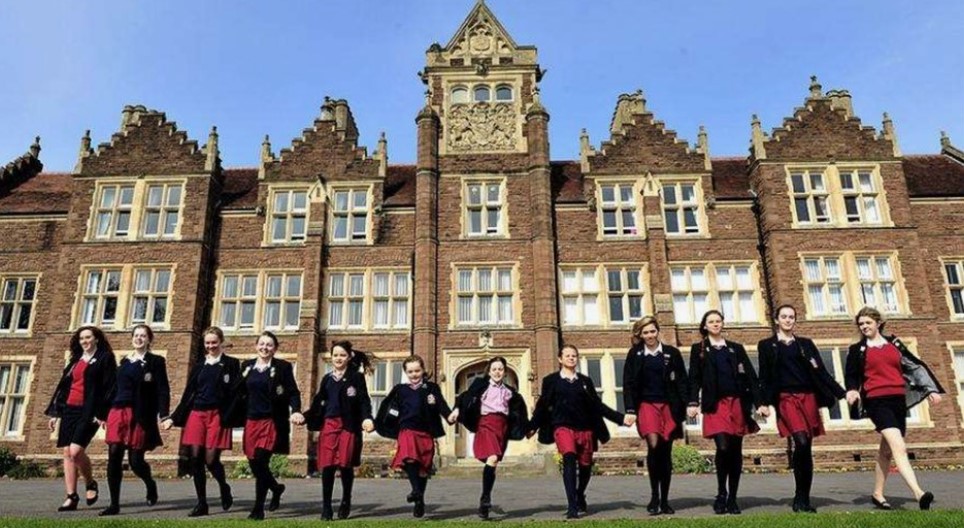
The United Kingdom’s education system is widely regarded as one of the most comprehensive and effective educational structures globally. Known for its balanced blend of rigorous academics, creative and interdisciplinary learning, and student-centered approaches, the UK system offers a robust foundation from early years to higher education. Similarly, institutions like Ajman private schools strive to incorporate such balanced and innovative approaches, adapting global best practices to provide quality education. This article delves into each key stage of the British school curriculum, the unique aspects of the UK education model, and the opportunities it provides to students.
The British School Curriculum and Its Stages
The British education system is structured into distinct stages, each catering to specific age groups and educational needs, ensuring that students gradually develop both academic and practical skills. Here’s a breakdown of the curriculum stages:
1. Primary School (Ages 5–11)
Primary education in the UK begins at the age of five. It is designed to build foundational knowledge and skills across a wide range of subjects. The curriculum includes:
🡪Core Subjects: English, mathematics, and literature
🡪Natural Sciences: Covering basics in biology, chemistry, and physics
🡪Foreign Languages: Offering an early start in linguistic skills
🡪Computer Science: Fostering digital literacy
🡪Humanities And Arts: Including geography, music, and art
🡪Physical Education and Health: Promoting physical well-being and healthy lifestyles
Primary education emphasizes an applied, interdisciplinary approach where students are encouraged to see connections between subjects. This approach promotes critical thinking and problem-solving skills from a young age. Unlike in many systems, traditional grades are not used. Instead, children are assessed based on age-appropriate developmental levels, with schools setting specific criteria to gauge progress. This system helps reduce academic pressure and supports holistic development.
Primary school includes standardized assessments, known as SATs (Standard Assessment Tests), which occur at the end of Year 2 and Year 6. These assessments cover reading and mathematics in Year 2 and expand to include grammar, punctuation, and spelling by Year 6. SATs help educators and parents understand each student’s progress relative to national expectations.

2. Secondary School (Ages 11–16)
Secondary education begins at age 11 and is divided into two stages: Key Stage 3 (ages 11–14) and Key Stage 4 (ages 14–16). This period marks a critical phase in students’ academic journey as they are introduced to a wider range of subjects and encouraged to identify their interests and strengths.
🡪Key Stage 3 (Years 7–9)
Students continue their studies across diverse subjects, including English, mathematics, natural sciences, computer science, foreign languages, and the arts. This stage allows students to explore various disciplines, providing them with a comprehensive knowledge base and helping them to consider future academic or career paths.
🡪Key Stage 4 (Years 10–11)
This stage centers around the General Certificate of Secondary Education (GCSE) program. Students select a combination of subjects that align with their interests and potential career goals, typically focusing on around eight to ten subjects. Core subjects include mathematics, English, and the sciences, while elective options cover areas like geography, humanities, art, and technology. At the end of Year 11, students sit for GCSE exams, and successful completion grants them a secondary education certificate.
3. Senior School (Sixth Form) – A-Levels and the International Baccalaureate
Senior school, or sixth form, comprises Years 12 and 13 and is intended for students planning to pursue higher education. Here, students specialize in three to four subjects through the A-Levels program, where they focus intensively on disciplines directly related to their intended university courses. This specialization prepares students for the depth of study expected at the university level.
Alternatively, some schools offer the International Baccalaureate (IB) Diploma, a globally recognized program that includes a broader range of six subject areas: English, foreign language, mathematics, natural sciences, humanities, and the arts. The IB emphasizes critical thinking, cultural awareness, and interdisciplinary understanding, allowing students to explore a variety of fields before committing to a specialization.
Distinctive Features of the British Curriculum
The UK education system is known for its flexibility and student-centered approach, which extends beyond the traditional subject structure. Here are some key features:
No Traditional Grades in Primary School
In primary school, children are not given traditional letter grades. Instead, each school establishes a developmental benchmark system that aligns with expected progress for each age group. This approach fosters a nurturing environment, focusing on individual growth rather than competitive grading.
Emphasis on Project-Based and Applied Learning
From primary through senior school, the British curriculum includes a significant emphasis on practical application. Students regularly engage in project work, where they work collaboratively on tasks related to real-life issues. This hands-on approach encourages teamwork, problem-solving, and creative thinking, equipping students with essential skills for future endeavors.
Flexible Subject Selection and Specialized Studies in Senior School
A unique aspect of the UK system is the choice of subjects at each educational level, especially in senior school. By Key Stage 4, students can select elective subjects that suit their interests and career goals. In senior school, they specialize further, choosing just a few subjects that align with their university and career aspirations. This freedom encourages students to take ownership of their education, which often translates to higher motivation and engagement.
Careers Department and Mentorship in High School
High schools in the UK have dedicated careers departments that support students in exploring various career options and planning their university pathway. Each student is assigned a mentor who provides guidance on the suitability of potential careers, helping them to make informed choices based on interests, strengths, and the requirements of higher education institutions. This mentorship is instrumental in preparing students for life beyond school.
Trimesters and Assessment Weeks
The academic year in British schools is divided into trimesters, each ending with an assessment week. These assessments help teachers monitor student progress and offer support where needed. The trimester system ensures consistent evaluation and gives students multiple opportunities to improve without the stress of a single high-stakes exam.

Additional Curriculum Components: Core, Elective, and Extension Subjects
In secondary education, the curriculum is divided into three primary components:
1. Core Subjects: Compulsory subjects such as English, mathematics, and the natural sciences form the foundation of the curriculum.
2. Elective Subjects: Students can choose from options like geography, arts, humanities, music, and technology, giving them room to explore personal interests.
3. Extension Curriculum: Unique to each school, these subjects encourage interdisciplinary learning, often involving group projects and personal research. Through these projects, students enhance their cognitive and creative abilities, and practical skills.
Benefits of the British Education System
The British education system offers numerous benefits, including:
🡪Emphasis On Interdisciplinary Learning: Students learn to make connections between subjects, fostering a holistic understanding that prepares them for complex real-world issues.
🡪Student Autonomy and Motivation: With the freedom to choose subjects, students are more invested in their learning journey, resulting in low rates of truancy and increased engagement.
🡪Focus On Skill Development: Hands-on projects, creative tasks, and laboratory work ensure that students develop practical skills in addition to academic knowledge.
🡪University Preparation: Through specialized studies in the A-Levels and IB programs, students are well-prepared for the rigors of higher education.
Conclusion
The UK education system’s comprehensive curriculum, flexible subject selection, and emphasis on student autonomy make it one of the most respected systems in the world. From primary school’s holistic development approach to senior school’s specialized programs, students are equipped not only with academic knowledge but also with critical life skills. This balanced approach ensures that UK students are prepared to pursue higher education, make informed career choices, and succeed in an ever-evolving world. Whether a student chooses the A-Levels, IB, or vocational pathways, the UK system supports a diverse range of academic interests and career aspirations, providing a solid foundation for lifelong success.

Soccer lover, nature enthusiast, guitarist, Bauhaus fan and critical graphic designer. Doing at the fulcrum of minimalism and purpose to craft experiences that go beyond design. I am 25 years old.


